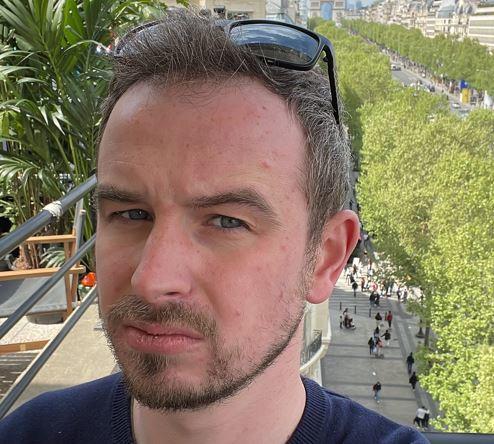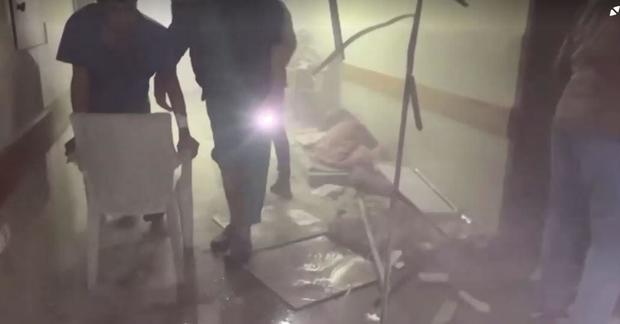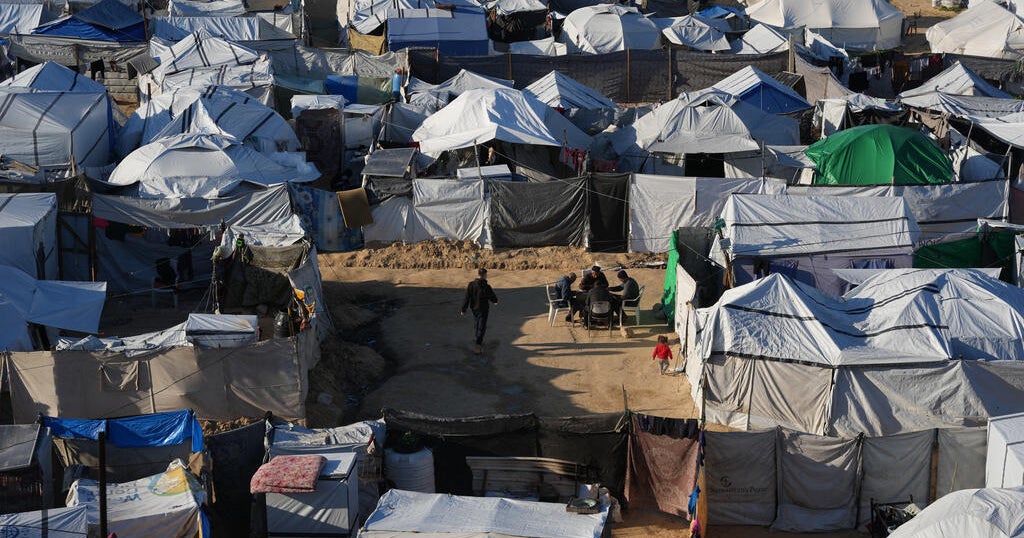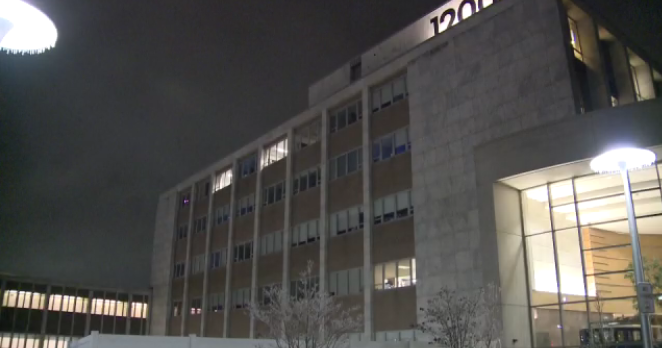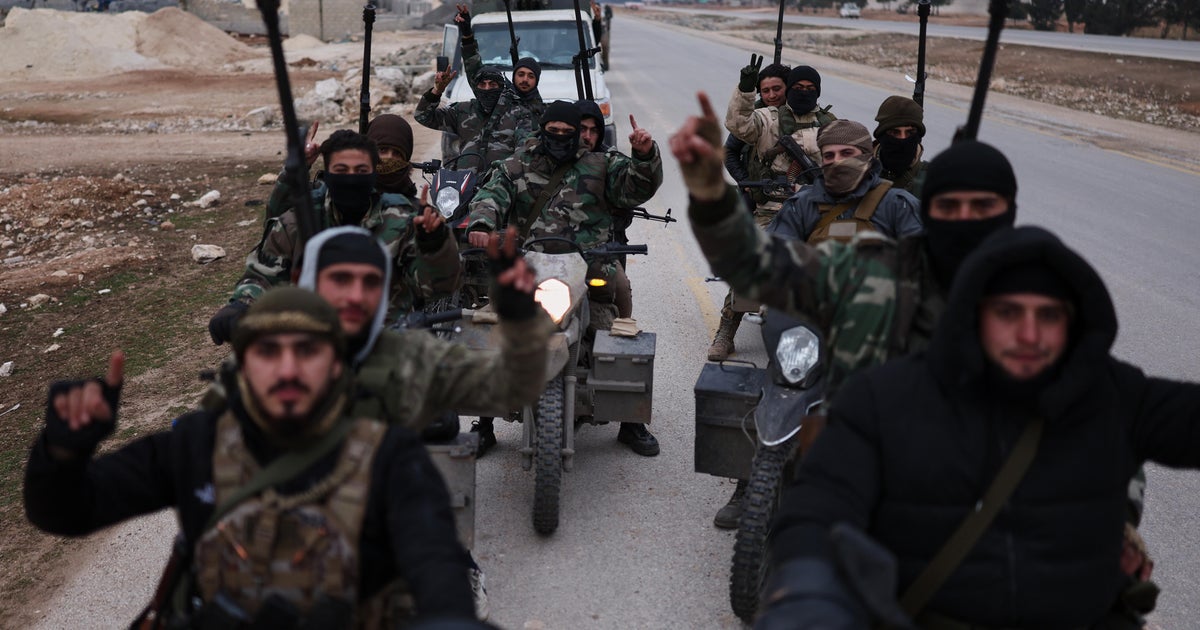Israeli troops enter Al Nasser Hospital, Gaza's biggest hospital still functioning, amid the war with Hamas
Israeli forces pushed Thursday into Al Nasser hospital in southern Gaza, the largest hospital still functioning in the Hamas-ruled Palestinian territory after four months of war, according to both the Israeli military and health officials in the enclave.
In a statement, Israel Defense Forces spokesperson Daniel Hagari said Israel had "credible intelligence from a number of sources, including from released hostages, indicating that Hamas held hostages at the Nasser hospital in Khan Yunis and that there may be bodies of our hostages in the Nasser hospital facility."
IDF forces enter Al Nasser hospital
He said Israeli troops were "conducting a precise and limited operation inside Nasser hospital" that was preceded by "an effort to evacuate residents from the hospital in order to reduce harm to those not involved."
The IDF said that it had apprehended an unspecified number of suspects inside the hospital and "contacted the Director of the Nasser Medical Center, calling for the immediate cessation of all Hamas terrorist activity from within the hospital."
The IDF did not immediately release evidence to back up its assertion that the hospital was being used as an operations hub by Hamas, but Hagari said it was merely the latest health facility in Gaza to be used by the militants in that way.
Ashraf Al Qedra, a spokesperson for the Hamas-run Gaza Ministry of Health, said IDF forces stormed the Nasser medical complex and turned it "into a military barracks after demolishing the southern wall."
"The occupation targets the ambulance headquarters and the tents of the displaced, and bulldozes the mass graves inside the Nasser Medical Complex," he said in a statement posted online.
Al Qedra did not refute the IDF's statement saying Israeli forces had evacuated displaced families and the families of medical teams working at the hospital early Thursday morning, but he said the evacuations were carried out "under bombardment and threats."
The health ministry also said intensive care patients in the hospital were being kept in the facility without medical staff, "which puts their lives in extreme danger."
Médecins sans frontières said in a statement on Thursday that MSF staff inside the hospital "reported a chaotic situation, with an undetermined number of people killed and injured."
"MSF medical staff have had to flee the hospital, leaving patients behind. Israeli forces set up a checkpoint to screen people leaving the compound; one of our colleagues was detained at this checkpoint. We call for his safety and the protection of his dignity," the statement said.
The humanitarian organization also reiterated its call for Israel to stop its operation in the hospital as it "endangers medical staff and patients who are still stuck inside the facility."
Netanyahu ignores warnings against Rafah offensive
The operation at Al Nasser in Khan Younis came as Israeli Prime Minister Benjamin Netanyahu reaffirmed his determination to push ahead with an offensive in the city of Rafah, about five miles south of Khan Younis, near the Gaza-Egypt border. The IDF has said Hamas still has four combat units hiding around the city, which it is determined to hunt down.
President Biden, along with many other nations and international aid organizations, has warned Israel against invading Rafah without a credible plan to ensure the safety of the roughly 1.5 million Palestinian civilians who have crammed into the area.
"Many people there have been displaced, displaced multiple times, fleeing the violence to the north, and now they're packed into Rafah, exposed and vulnerable. They need to be protected," Mr. Biden said earlier this week. "We've also been clear from the start, we oppose any forced displacement of Palestinians from Gaza."
Roughly 80% of Gaza's population has been displaced and at least half of the enclave's 2.3 million people are now believed to be packed into Rafah, according to the United Nations.
U.N. Humanitarian Affairs chief Martin Griffiths warned Tuesday that a military operation in Rafah "could lead to a slaughter in Gaza" and "leave an already fragile humanitarian operation at death's door."
South Africa files new bid to restrain Israel at U.N. court
On Tuesday, South Africa's government filed an urgent request with the U.N's International Court of Justice, asking it to issue a new legal order to constrain Israel's military, specifically citing the "developing circumstances in Rafah."
"The South African Government has made an urgent request to the International Court of Justice (ICJ) to consider whether the decision announced by Israel to extend its military operations in Rafah, which is the last refuge for surviving people in Gaza, requires that the court uses its power to prevent further imminent breach of the rights of Palestinians in Gaza," the South African presidency said in a social media post.
South Africa filed a case with the ICJ in December accusing Israel of genocide in Gaza and seeking an immediate order for Israel to halt its military campaign. While legal proceedings continue and no ruling has been made on the core argument of the case, the court did issue an order last month for Israel to do everything in its power to prevent the deaths of Palestinian civilians. The court has no power to enforce its order on Israel.
The ICJ stopped short of calling for a cease-fire, and it has not yet ruled on the claim that Israel is committing genocide — which Israeli leaders have vehemently rejected.
In response to the latest request to the ICJ, Israel's Foreign Ministry said South Africa was representing "the interests of the Hamas terrorist organization and is trying to deny Israel the fundamental right to defend itself and its citizens."
"Israel is committed to upholding international law, including facilitating the transfer of humanitarian aid and preventing harm to innocents, while the Hamas terrorists are hiding behind the civilian population in the Gaza Strip and are holding 134 people hostage," Foreign Ministry spokesperson Lior Haiat said in a social media post.
CBS News' Sarah Carter in Johannesburg contributed to this report.
